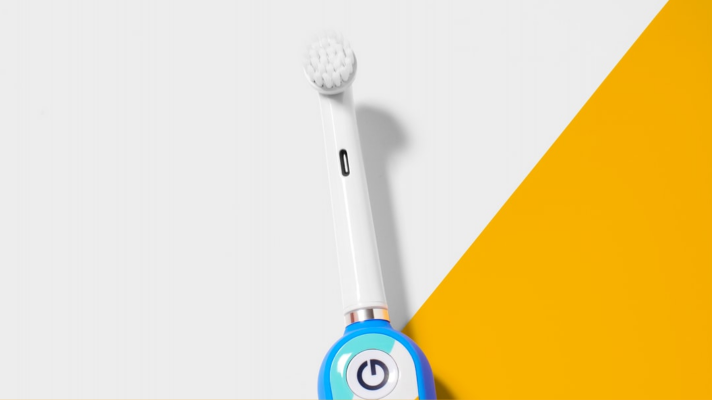As your child gets older, you’ll want to monitor their oral health closely. Oral health is a fundamental pillar in your child’s overall health, so the better habits you teach them early on, the more likely that they’ll have remarkable oral health throughout their lives.
The dental needs of your child will differ from your dental needs. So, what exactly should you know? Here are some key things you must know about children’s dentistry, and how knowing these things will help your child live a healthier life.
Kids Should Visit Early On
One of the most important things to know about children’s dentistry is that children should visit the dentist sooner than later. The American Academy of Pediatric Dentistry (AAPD) recommends that children go to the dentist by the time they are one year old, or within six months of their first tooth coming in. That way, the dentist can evaluate what your child’s oral health looks like so far in their young life.
Some parents wonder if they should wait until their child has multiple teeth to visit the dentist, but that’s not recommended. Parents shouldn’t wait two years or more to bring their child to the dentist. If your child gets their first tooth at eight months, take them to the dentist within a few weeks of the tooth coming in. If your child doesn’t have a tooth by the time they’re one it’s still important to make a dentist appointment. This will allow the oral health professional to monitor their tooth growth and identify any delays in your child.
Remember, if you aren’t sure if it’s the right time to visit the dentist with your child, you can always contact the dentist and get their advice. Taking a young child to the dentist is an important step for their overall health, so if you need some extra reassurance you’re taking them at the right time, so be it.
Your Child Will Get a Checkup During the First Visit
Something else to note about children’s dentistry is that during your child’s first dental visit, it’s likely that they’ll get a checkup. The dentist will take a look at their gums and teeth (if they have any). They may also perform routine dental services, such as a dental cleaning or take X‑rays if needed.
If you have questions about what checkups will be done on your child during their first visit, contact your child’s dentist to get an idea of what to expect. The dentist will tell you what you can expect and how the typical first dentist appointment for a child goes.
You can also ask your child’s dentist to recommend tips for preparing your child for their dentist appointment. Some children may feel anxious about going to the dentist, but there may be steps you can take to ease their concerns. You could talk to them about what it means to go to the dentist, who the dentist is, and why it’s important to go. Knowing this information can help kids feel more at ease before their appointment.
The Dentist Will Recommend Teaching Good Dental Habits
Another key thing to remember is that your child’s dentist will recommend oral hygiene habits to teach them. But this is your responsibility as a parent, too. The first checkup is just as important for you as it is for your child. Find the best dentist who will help you teach your child the importance of these habits.
These habits include brushing your teeth twice a day and flossing daily. Keeping up with brushing and flossing is essential for oral health, and it’s especially important for preventing cavities and tooth decay. Between 60% and 90% of school children and almost 100% of adults around the world have tooth decay, which can lead to a lot of pain and discomfort. The only way to prevent this is to teach your child proper brushing and flossing habits early on.
A good rule of thumb for brushing your children’s teeth is to have them brush with a small amount of fluoride toothpaste and a soft-bristle toothbrush. They should brush for two minutes in the morning and at night, spit the toothpaste out, and rinse their mouth with water. This helps strengthen their teeth and keep their gums healthy. Some parents also worry about their child swallowing toothpaste, but if they only swallow a little bit, it shouldn’t cause any harm. If your child swallows a lot of toothpaste, you should call the doctor to check what your next steps should be. Sometimes, ingesting too much fluoride can cause issues with calcium and magnesium in the body. To be safe, contact your child’s doctor to get a professional medical opinion about the situation.
You Should Take Your Children to the Dentist Regularly
It’s recommended that children go to the dentist twice a year to maintain their oral health. Going to the dentist twice a year allows your child’s dentist to check on their teeth and gums to make sure everything’s looking healthy. Since your child is developing quickly, even small issues can lead to larger oral health problems later on. Visiting the dentist regularly can help catch these problems before they get worse.
Some parents may think it’s okay to take their child to a dental specialist less than twice a year, but that can cause issues down the line. A lot can happen in six months, especially if your child’s diet changes. As kids get older, parents may be more tempted to let them eat more sugary snacks and drink sugary drinks. This means more bacteria can feed on the sugar on their teeth and cause an acidic reaction. That reaction can cause a lot of wear and tear on your child’s enamel, and before you know it, there could be tartar on their teeth. If you take them to the dentist every six months, their teeth will get cleaned properly and you won’t have to worry about serious buildup happening.
The Right Dentist Will Make Your Children Feel Safe
Going to the dentist may be scary for your child. They may not like the idea of a stranger taking a look at their mouth and cleaning their teeth with sharp objects. That’s why the best dentists in children’s dentistry should make your children feel safe from the moment they step into the office.
Many parents may feel like they’re restricted to visiting the dentists that fit within their dental insurance plans. While it is important to find dentists that you can afford, it’s also vital to visit a dentist you know has your child’s best interest at heart. They should be kind, understanding, and make it easy for you and your child to understand what they’re doing.
There’s a lot to keep in mind when talking about children’s dentistry. These things are important to remember as your child gets older and their dental health becomes more of a priority. The key is to help them develop good dental hygiene habits early on so they carry them throughout their lives. Teach your children to brush and floss regularly and how to identify if something may be wrong with their dental health. The earlier they know what to do, the better their chances of having optimal oral health for the rest of their life.






